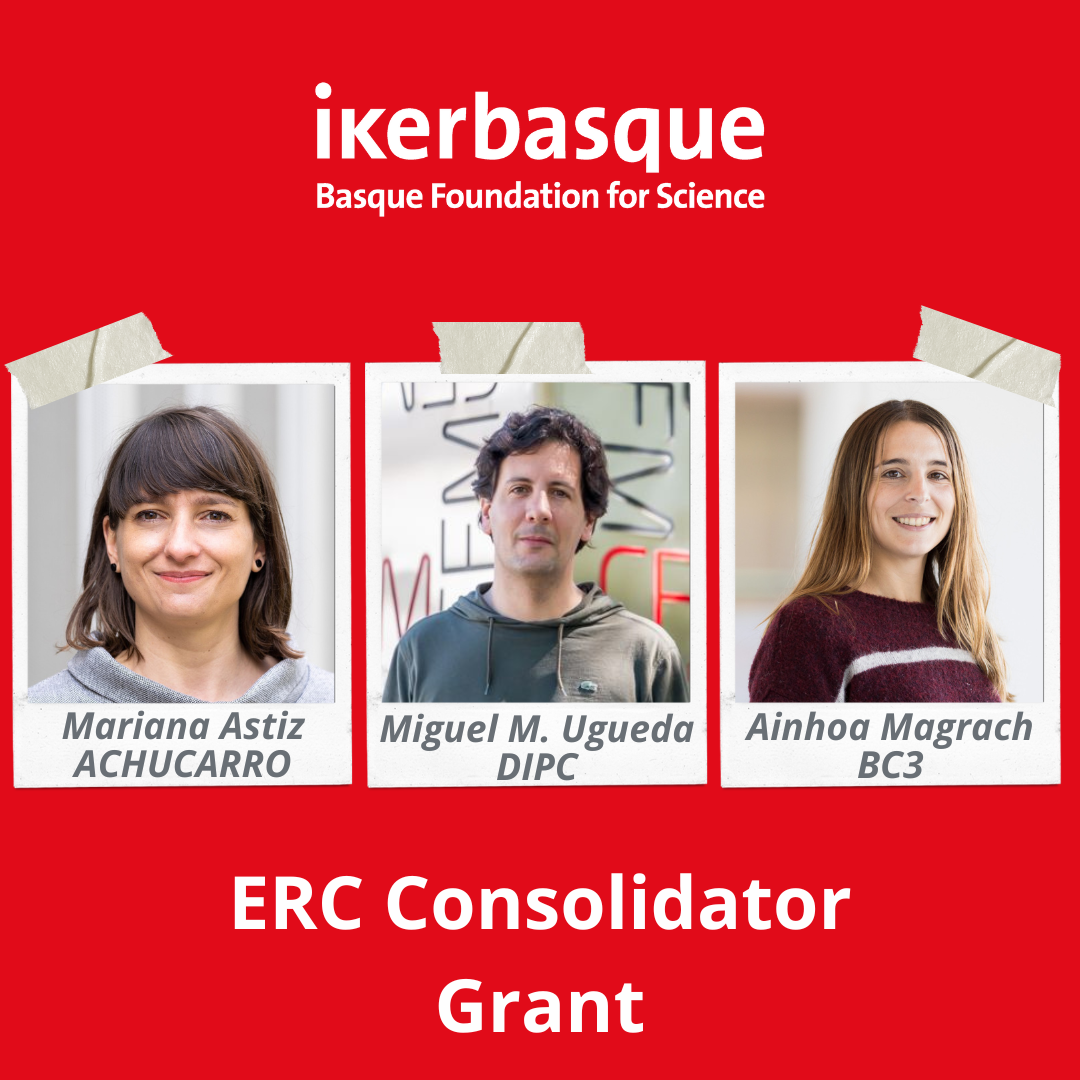
In 2007, the European Commission created the European Research Council (ERC) with the aim of promoting excellent basic science in Europe, supporting the best researchers from all fields and of any nationality who wished to continue their research at the frontiers of knowledge. The ERC finances prestigious projects that seek to develop novel and high-risk research. Since its creation, the ERC has had a considerable impact on the European research landscape.
On 31st January, we have known the results of the ERC Consolidator call, a modality aimed at excellent researchers, who have between 7 and 12 years of scientific experience and whose objective is to finance the most promising ideas, those that are on the frontier of the knowledge. In this call, three of the grants have been for Ikerbasque researchers:
- Ainhoa Magrach, an Ikerbasque researcher at the Basque Center for Climate Change (BC3) has received 2 million euros, specifically €1,998,793, to develop the GorBEEa project. This project represents an ambitious research program at the intersection of population, community, ecosystem, and conservation ecology, which will facilitate an understanding of how declining levels of biodiversity influence natural ecosystem dynamics. In addition, GorBEEa offers an applied perspective through collaborations with different decision makers to develop management practices in protected areas informed by scientific evidence.
- The Ikerbasque researcher from the Donostia International Physics Center (DIPC) Miguel Moreno Ugeda receives an ERC Consolidator Grant, with an endowment of 2,800,000 euros. This funding from the European Research Council will make it possible to acquire state-of-the-art equipment for the mKoiré project, which aims to study superconductivity in graphene-based moiré-type materials at very low temperatures and under vacuum conditions. It also has great potential in the development of quantum materials.
- Mariana Astiz, an Ikerbasque researcher at the Achucarro Basque Center for Neuroscience, has received 2 million euros (exactly 1,955,895 euros) to develop the StarTicking project in which she intends to answer a long-standing question: when and how the circadian clock starts to work. Her goal is to investigate how the central pacemaker develops in the brain and what is the influence of the maternal environment in both mice and humans. StarTicking will provide valuable mechanistic insights into a process that occurs during pregnancy and has major health consequences for the rest of our lives.
With thousands of applicants every year and after an international evaluation in which scientific excellence is the only evaluation criterion, only 10-15% of the projects get this attractive funding. This year there have been 321 projects financed with a budget of 657 million euros.
The initiatives supported by the European Research Council have great prestige among the international scientific community. In fact, the success in obtaining these grants, which cover all scientific areas, is an indicator of excellence at an international level. According to Fernando Cossio, scientific director of Ikerbasque, "Obtaining ERC funding makes the Basque Country internationally recognized as a region with advanced research, with Basque research groups of international level and where the right conditions exist to develop research of international impact" .
.png)
